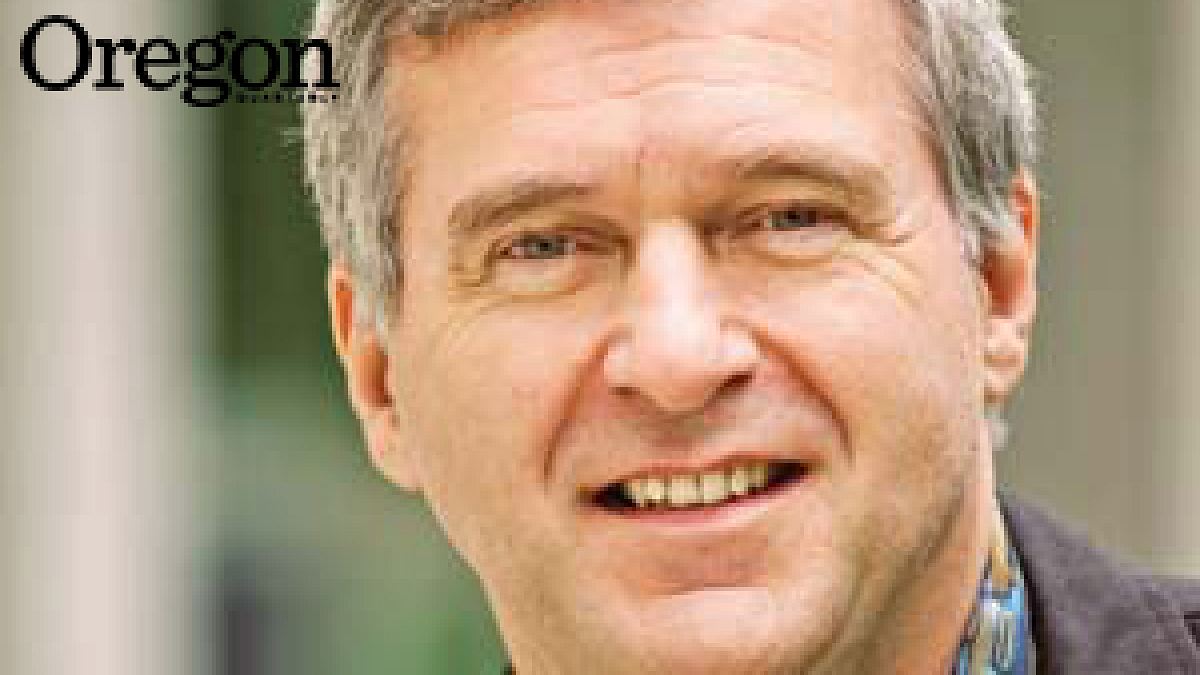When cartoons of the prophet Mohammad published by a Danish newspaper in 2006 sparked protests and deadly riots, media outlets around the world were faced with a dilemma. In their coverage of the story, should they reprint the drawings? Such ethical questions require reporters and editors to balance their commitment to disseminate true, relevant information with their commitment to respecting the communities they serve. Finding the proper balance is a complex and ongoing task, one that Stephen Ward—the recently hired director of the UO School of Journalism and Communication's George S. Turnbull Portland Center—believes should lie at the very heart of every journalist's education.
Ward's own experiences as a foreign correspondent during conflicts in Bosnia, Yugoslavia, and Northern Ireland greatly shaped his own views on the importance of media ethics, as did his study of philosophy, in which he holds a PhD. The intersection of the philosopher's studied approach and the very real, pragmatic, and immediate lessons of reporting in a war zone convinced him of the need for a global view of ethics, wherein promoting humanity—not merely national borders and allegiances—must be held up as the highest ideal. Now recognized as an expert in the field, Ward has published four books on media ethics and was the founder of the Center for Journalism Ethics at the University of Wisconsin at Madison before joining the Turnbull Center in July.
In his new role at the White Stag Block, and with the support of faculty members, alumni, and the local professional media community, Ward hopes to develop the UO's Portland journalism program into a nationally recognized center for excellence in media and media studies. And most important, he endeavors to ensure that graduates go out into the world prepared to tell true stories in a wide variety of media, all with a global mindset and a strong ethical foundation.
—By Mindy Moreland, MS '08


